MA Scholarship at Prince’s School of Traditional Arts
The Prince’s School of Traditional Arts, London are accepting applications for the MA programme until 3rd March 2014. Past successful applicants have included people with first degrees in arts, crafts, English, pharmacology and chemistry. We also welcome applications from practicing artists or people with relevent experience.
The degree of Master of Arts (MA) is delivered by The Prince’s School of Traditional Arts; validated and awarded by the University of Wales, UK.
The course is undertaken over two years of full-time study. In their first year, the MA students are required to follow a programme of courses designed to introduce them to the practice and meaning of the traditional arts of the world. In their second year, students continue their coursework with the study and practice of geometry, and focus on the development and completion of their own self-directed projects in close consultation with their tutors.
Each summer the Degree Show celebrates the variety of ways in which the graduating students have drawn inspiration from the traditional arts.
The MA degree course is mainly practical work with a written piece of 5,000 – 7,000 words to be submitted before the beginning of the second year.
The academic year consists of 34 weeks divided into three terms: Autumn Term (11 weeks), Spring Term (11 weeks), Summer Term (12 weeks).
Applicants must have obtained a relevant undergraduate degree or equivalent qualification, or, in the case of applicants without an under-graduate degree, the school places greatest emphasis on practical rather than theoretical work. Applicants are assessed not only on their artistic skills but also on their potential to contribute to the course and benefit from it.
The criteria for those applicants without an under-graduate degree is based on the following:
a. Their portfolio of work, which should be of outstanding quality.
b. OR the candidate is asked to work on a project during the year before acceptance onto the programme.
c. OR the candidate is asked to complete at least one full-time year as a diploma student at the School.
Other requirements
Candidates without English as a first language must reach a minimum of an overall band of 6.5, with no score below 5.5 in listening, speaking, reading and writing, on the IELTS test and satisfy the interviewing committee of their ability to express themselves well enough in English to pursue the course.
References
Candidates with a UK undergraduate degree or recognised equivalent will have to provide a copy of their certificate and transcript as evidence.
Candidates with no undergraduate will need to provide two references which should comment specifically on the role that the student has undertaken e.g. job title, dates of employment, nature of the work, providing evidence of specific experience relevant to the course and a detailed CV which demonstrates your suitability to study the course e.g. specific employment dates, job titles, descriptions of tasks undertaken in employment etc.
Applications
Prospective applicants should contact the Registrar, Ririko Suzuki, who will organise a time to visit the School. During this visit, applicants will have an opportunity to meet academic staff and current students, they will also be able to get advice on the application process and portfolio contents.
To apply for the MA degree, please download and complete the application form from the School’s website www.psta.org.uk
Fees
Annual fee for UK students is £6,500
Annual fee for overseas students is £10,000
UNESCO Intangible Cultural Heritage (ICH) Meeting 2015

The Islamic Arts Museum Malaysia is proud to be selected as the venue and co-hosting the next UNESCO Intangible Cultural Heritage (ICH) in the Asia-Pacific Region Meeting. The international forum aims to lead an in depth discussion on the policy, strategy, and methodologies concerning the research and safeguarding of ICH in the region.
The 2 days meeting which will be held on the 26th and 27th January 2015 is co-host and co-organise by the National Institute for Cultural Heritage in Osaka, Japan and the Islamic Arts Museum Malaysia. This is the inaugural international collaboration between the two organisations.
The meeting will bring in 30 international experts in intangible heritage from member countries like Fiji, Iran, Japan, Kazakhstan, Thailand, Malaysia, Republic of Korea and Vietnam.
With this collaboration, IAMM hopes to increase its presence in East Asia and Oceania as well as strengthening ties with the UNESCO and the National Institutes for Cultural Heritage, Japan.
